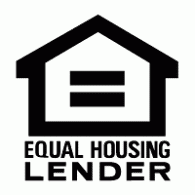If you’re self-employed, navigating the mortgage landscape can seem daunting. Traditional loans often require documentation that may not readily reflect your actual income, such as tax returns and pay stubs. This is where a 12-month bank statement loan shines as an optimal choice for individuals like you.
By leveraging your monthly banking activity over the past year, these non-qualified 12-month bank statement mortgage loans for self-employed borrowers offer a tailored solution without needing conventional proof of income. With requirements that align more closely with freelancers, contractors, and small business owners’ financial situations, this path simplifies access to competitive mortgage rates with terms designed to suit your unique needs.
Benefits of Bank Statement Loans For Self-Employed Borrowers In Scottsdale, Arizona
For self-employed people, a 12-month bank statement loan could be their key to homeownership. Without needing tax returns or pay stubs, this option uses your 12-month bank statements to verify income. It’s suited for small business owners, consultants, and gig workers.
You can qualify with only a 20% down payment and still secure competitive rates. Plus, if you have good credit (think 680+), the door is even wider open. This approach acknowledges and accommodates the unique income situations of entrepreneurs and freelancers by viewing their financial health through an alternative yet practical lens – their actual banking activity over time.
Qualifying for a 12-month Bank Statement Loan In Scottsdale, Arizona
To qualify for a 12-month bank statement loan, gather your last year’s personal and business bank statements. These documents will crucially demonstrate your income flow to lenders instead of the traditional tax returns or W-2s usually required. Self-employed individuals, such as freelancers or small business owners, often find these loans more accessible due to their unique financial situations.
Lenders analyze these statements with an eye on consistent cash flows—assessing whether you regularly have enough balance to comfortably cover mortgage payments without jeopardizing your financial stability. It’s about proving reliability in earnings despite having non-traditional revenue streams. Expect higher interest rates than conventional mortgages since there’s perceived risk in lending money based on less orthodox proof of income sources.
But make sure to let this deter you; it’s still feasible to secure a fair deal tailored for entrepreneurs eager for homeownership but hindered by standard qualifying criteria.
Simplified Application Process Explained
Navigating the 12-month bank statement loan process is surprisingly straightforward. You start by providing your bank statements from last year instead of traditional income verification forms like W-2s or tax returns. Lenders will review these to understand your cash flow and assess if you can handle monthly payments.
This approach suits self-employed professionals who might need more steady paychecks but manage consistent income through their business activities. Rest assured, all information shared is reviewed with a keen eye for accuracy, safeguarding both your interests and financial security throughout the application journey.
Comparing Traditional vs. Statement Loans In Arizona
Understanding the difference between traditional mortgages and 12-month bank statement loans is vital when advising clients. Traditional mortgages rely on W-2s, tax returns, and pay stubs for income verification. They offer lower interest rates because this standard documentation reduces lender risk.
On the other hand, 12-month bank statement loans use a borrower’s bank statements to assess income and cash flow—ideal for those who don’t have conventional proof of earnings, like self-employed individuals or freelancers. These non-traditional loans usually have higher rates due to lenders’ perceived risk. Down payment requirements vary across both loan types. Traditional options may require as low as 3%, while bank statement loans could need more than 20%.
In essence, more structured earners favoring steady incomes might find better fits within traditional frameworks, whereas versatile earners benefit from the adaptable nature of bank statement loans despite their cost drawbacks.
Boost Your Approval Chances Today
To boost your approval odds today, consider a 12-month bank statement loan. This option shines for self-employed individuals like you. It considers cash flow through gross deposits, not just net income.
You could get approved for more money than with traditional loans. If you’ve saved up or invested wisely, these assets may further sweeten the deal by improving terms and rates. But remember to weigh this against your financial future carefully before deciding.
Understanding Interest Rates and Fees For 12-Month Bank Statement Loan in Arizona
When diving into bank statement loans, note that interest rates tend to be higher. This is mainly because these are non-QM loans, which lenders see as riskier. However, there’s room for negotiation on those rates.
You must also understand the fees involved; they can vary considerably. Your financial health—your credit score in particular—plays a big part in what rate and terms you might secure. Moreover, getting one of these 12-month bank statement loans in Scottsdale, Arizona starts with choosing a lender skilled in handling them due to their unique nature compared to standard mortgages.
They cater exceptionally well if your income doesn’t fit traditional molds or fluctuates widely month-to-month. You’ll need thorough documentation like 12 months’ worth of bank statements and possibly more depending on whether it concerns personal or business accounts—a factor pivotal for self-employed applicants who frequently blend both types of expenses.
The Bottom Line
Bank statement loans are a good alternative for entrepreneurs who need to fit the mold of conventional loans.
Lending solutions from Blake Mortgage empower self-employed professionals by focusing on real-world earnings rather than conventional metrics alone.





